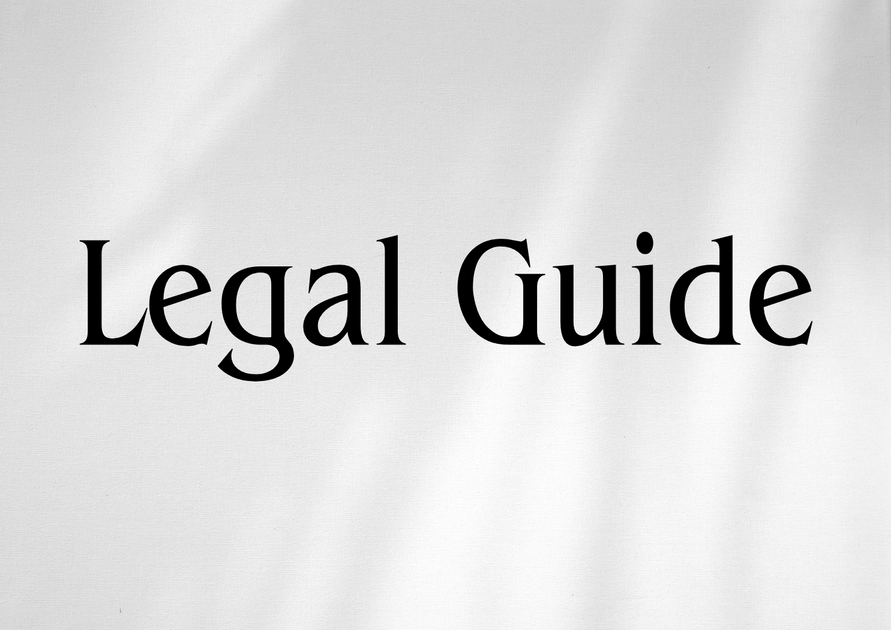Introduction: Why Qatars Commercial Sale of Goods Regulations Matter for UAE Businesses in 2024
In light of the dynamic trade relations between the United Arab Emirates (UAE) and Qatar, understanding the legal landscape governing the commercial sale of goods in Qatar has never been more crucial. With significant updates to the Qatari commercial legal framework—and an ever-tightening focus on cross-border trade compliance in the GCC—businesses, legal teams, and executives in the UAE must ensure they remain compliant and competitive. This in-depth consultancy guide serves as a definitive resource on Qatar’s commercial sale of goods regulations, offering authoritative legal analysis, strategic guidance, and comparative insights relevant to both in-house counsel and business leaders. As 2025 approaches, strengthened by lessons from recent UAE legal reforms, this article will inform your risk mitigation, contract management, and market entry strategies, as well as your compliance posture in Qatar.
Table of Contents
- Overview of Qatars Commercial Sale of Goods Law
- Key Provisions and Principles in Commercial Sales
- Contract Formation and Enforceability
- Obligations of Buyers and Sellers
- Risks of Non-Compliance and Penalty Regimes
- Comparison with Previous Qatari Law and Recent UAE Updates
- Practical Applications: Case Studies and Hypotheticals
- Strategies for Legal Compliance and Best Practice
- Conclusion: Navigating Change for Sustainable Success
Overview of Qatars Commercial Sale of Goods Law
Legal Background
The primary source governing the sale of goods in Qatar is Law No. (27) of 2006 promulgating the Trade Law, closely aligned with regional and international commercial standards. The law has seen amendments in line with World Trade Organization (WTO) accession requirements and GCC commercial law harmonization. Where applicable, the Qatari Civil Code (Law No. 22 of 2004) and related ministerial or cabinet resolutions play interpretative roles.
Why it Matters for UAE Stakeholders
Cross-border commercial transactions, franchise agreements, and distributorships rely on familiarity with both Qatari and UAE legal requirements. Given prevailing economic integration, UAE firms often establish branches or enter joint ventures in Qatar, exposing themselves to Qatari law by default, including sale of goods provisions, dispute resolution regimes, and recent international regulatory developments.
Key Provisions and Principles in Commercial Sales
Defining Commercial Sale under Qatari Law
The law defines commercial sale as a contract obligating the transfer of ownership of tangible movable goods for a consideration. Key takeaways for UAE businesses include the strict distinction made between commercial sales and civil (consumer) contracts, which impacts limitation periods and default rules.
Core Principles
- Freedom of Contract: Parties are largely free to determine contractual terms, except where overridden by mandatory legal rules (e.g., warranty, liability).
- Good Faith: Good faith is a foundational requirement in negotiating, executing, and performing contracts.
- Caveat Emptor (Buyer Beware): The law encourages diligent due diligence and inspection of goods by buyers prior to concluding sale.
- Risk Transfer: Risk typically passes on delivery, unless contractually stipulated otherwise.
Official Source References
Reference: Article 1046 et seq. of Qatari Civil Code (Law No. 22 of 2004); and Article 87 et seq. of Law No. 27 of 2006 on Trade Law.
Contract Formation and Enforceability
Essential Elements of a Commercial Sale Contract
Validity rests on several pillars:
- Mutual Agreement: Offer and acceptance are core, with evidence required in writing or by conduct (delivery, payment).
- Legitimate Object: Goods must be legally tradable and owned by the seller.
- Specifiable Price: Price must be determinable or based on market/industry standards at the time of contract.
Electronic Contracts and E-Commerce Considerations
In response to digital transformation, Qatari law (Law No. 13 of 2010 – E-Transactions and E-Commerce Law) recognizes electronic signatures and records, lending them legal significance akin to paper contracts. This is increasingly relevant to UAE-based businesses using online sales platforms across GCC borders.
Consultancy Insight
Practical Tip: For enforceability and risk mitigation, always reference applicable law and dispute forum in cross-border contracts, and ensure your contracts are clear on price, delivery, inspection, and risk transfer terms.
Obligations of Buyers and Sellers: Duties under Qatari Law
Seller Obligations
- Delivery of goods in specified quantity, quality, and time (Article 90 et seq. of Trade Law).
- Warranty against defects (often non-excludable), including secret and apparent defects.
- Title warranty – an obligation to provide transfer of unencumbered ownership.
Buyer Obligations
- Timely payment of the agreed price.
- Acceptance of goods after inspection and providing prompt notice of discovered defects.
Practical Comparison Table: Seller and Buyer Duties before and after 2017 Law Amendment
| Duty | Pre-2017 | Post-2017 |
|---|---|---|
| Delivery Standard | At agreed time/place | At agreed time/place; clear mechanism for force majeure |
| Defect Notification | Within reasonable time | Within specified period; stricter standard for hidden defects |
| Payment Terms | Flexible, customary | Contract/schedule specified; failure triggers automatic default |
| Warranty Against Defects | Often contractual | Mandatory minimum for latent/essential defects |
Suggested Visual: Compliance Checklist Table for Seller and Buyer Duties
Consultancy Insight
For UAE companies entering the Qatari market or exporting goods, standard sales terms may require revision to meet Qatari requirements on warranties, time limits for notification, and permissible exclusions under the law.
Risks of Non-Compliance and Penalty Regimes
Legal Liability for Breach
- Damages: Compensatory remedies for direct losses, lost profits, and (in limited cases) moral damages.
- Specific Performance: Courts can compel delivery or receipt of goods per contract.
- Rescission and Termination: Available where breach is material or agreement so provides.
Administrative and Criminal Exposure
- Trading in prohibited goods, price collusion, or misrepresentation invite administrative and, in flagrant cases, criminal penalties.
- Non-compliance with e-commerce or customs procedures can result in fines or business suspension.
Penalty Comparison: Qatari vs UAE Regulations 2024
| Violation | Qatar Penalty (2024) | UAE Penalty (2024) [per Federal Decree No. 31 of 2021 and subsequent updates] |
|---|---|---|
| Deliberate Defective Delivery | Compensation + possible fine | Compensation; option for regulatory reporting |
| Unlicensed Trading | Business closure / heavy fine | Suspension/closure; criminal proceedings for repeat |
| Consumer Fraud | Fine (up to QAR 1 million); imprisonment in severe cases | Fine (up to AED 2 million); public naming for serious offenses |
Suggested Visual: Penalty Comparison Chart
Compliance Advisory
- Establish robust training programs on local trade standards for sales staff.
- Regularly audit supply chains and contracts for legal rigor.
- Retain local counsel for high-value or complex transactions involving Qatari parties.
Comparison with Previous Law and Recent UAE Legal Updates
Notable Legislative Evolution
Qatar’s legislative approach is increasingly harmonized with GCC standards and international conventions such as the United Nations Convention on Contracts for the International Sale of Goods (CISG), even though Qatar is not a formal signatory. Notably, digital transactions and e-contract enforcement receive greater legal recognition. Meanwhile, the UAE’s updated commercial regulations (Federal Decree-Law No. 50 of 2022 On Commercial Transactions and allied Cabinet Resolutions) have modernized definitions of e-commerce, expanded mandatory disclosure, and imposed new compliance reporting requirements—highlighting the importance of cross-jurisdictional comparisons.
Old vs New Law Table – Qatari vs Recent UAE Sale of Goods Legislation
| Key Area | Qatar (2024) | UAE Law 2025 Updates |
|---|---|---|
| Acceptance Mode | Written, oral, conduct | Explicit demand for e-signature/e-record; higher evidentiary standard |
| Warranty Limitations | Not always waivable | Some minimum warranties cannot be excluded (consumer focus) |
| Statute of Limitation | 1 year (merchant sales), 2 years (others) | 1 year (with contractual extensions allowed) |
| Remedies | Rescission, damages, specific performance | Broader access to interim and urgent remedies; online claim filing |
Suggested Visual: Flow Diagram – Contract Formation under Qatari vs UAE Law
Practical Applications: Case Studies and Hypotheticals
Case Study 1: UAE Distributor Exporting Electronics to Qatar
A UAE-based electronics distributor enters an annual supply contract with a Qatari retailer. The agreement, governed by Qatari law, stipulates delivery terms based on Incoterms but fails to specify defect inspection periods.
- If the Qatari retailer discovers a latent defect after six months, Qatari law’s strict notification deadlines could preclude remedies unless contractually extended. The distributor faces reputational risk and financial exposure if routinely using UAE-oriented standard terms.
- Consultancy Insight: Always adapt warranty and inspection timelines to reflect local law, not just home jurisdiction practice.
Case Study 2: E-Commerce Sales via UAE Portal to Qatari Customers
An Emirati e-commerce platform enables direct sales to consumers in Doha. Under Qatar’s e-commerce law, tax disclosures, mandatory Arabic language consumer rights, and retention of e-records become critical. Non-compliance may trigger cross-border regulatory actions against both the platform and underlying suppliers.
- Consultancy Insight: Build compliance into onboarding and fulfillment workflows, and partner with Qatari counsel for consumer contract reviews.
Hypothetical Example: Failure to Register Agency Agreements
A UAE business appoints a local Qatari commercial agent, but registration with Qatar’s Ministry of Commerce is neglected. As a result, the agent’s claims for commission or indemnity are jeopardized in litigation, and the principal faces possible business suspension.
- Consultancy Insight: Diligent compliance with agency registration and mandatory disclosure is essential for dispute avoidance and contract enforceability.
Strategies for Legal Compliance and Best Practice
Recommended Action Points for UAE Companies
- Contractual Clarity: Localize all contractual templates for Qatari law, specifying timeframes for delivery, inspection, and warranties.
- Legal Due Diligence: Prioritize supply chain screening and counterparty due diligence, with regular contract reviews by Qatari-licensed lawyers.
- Record Keeping: Adhere to mandatory e-record and archiving standards under Qatari e-commerce law.
- Proactive Training: Train commercial and sales staff on Qatari market standards and current legal nuances.
- Dispute Resolution Preparedness: Build robust mechanisms for amicable negotiation and clearly stipulate dispute resolution forums (QICDRC, arbitration, etc.)
Suggested Placement: Compliance Checklist Visual
A concise checklist or infographic summarizing the steps for sales compliance in the Qatari market can help organizations operationalize these recommendations.
Conclusion: Navigating Legal Change in Qatars Commercial Sale of Goods Landscape
Staying abreast of developments in Qatari commercial sale of goods regulations is not just a compliance requirement for UAE businesses—it is a commercial imperative. As both Qatar and the UAE continue to modernize their legal frameworks, companies must continuously update their contractual, operational, and risk management approaches to ensure seamless integration and avoid costly disputes. By proactively engaging with trusted legal counsel, investing in compliance infrastructure, and embracing industry best practices, UAE organizations can position themselves as market leaders in cross-border GCC trade. Looking ahead, regulatory convergence and heightened enforcement are set to shape the regional business environment, making compliance excellence a key differentiator and driver of sustainable growth.
For tailored advice or contract review in relation to Qatari law or UAE federal decree updates, consult with an experienced legal advisor accredited to practice in both jurisdictions. This ensures your business remains not only compliant but also resilient and agile in the rapidly evolving GCC landscape.




